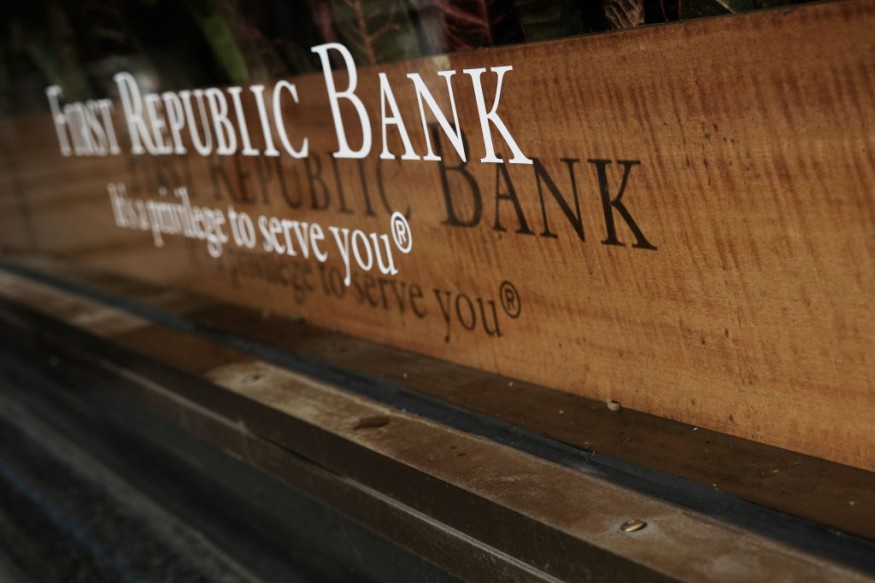First Republic Bank Seized, Sold to JPMorgan Chase

First Republic Bank struggled for weeks after it saw a large outflow of funds as depositors rushed to pull their money and deposited it to other institutions they viewed safer.
The New York Times reported that First Republic Bank's shares dropped 75% just last week as investors feared it would fail, with the drops released after the company announced earnings results.
The earnings results showed that it had borrowed significantly from the Federal Reserve and government-backed lending groups.
After the First Republic Bank's failure, its stock will be delisted, while its common shareholders will be wiped out after the government seized it.
It was reported that First Republic Bank shareholders and its debt holders would not receive anything. JPMorgan Chase said it would not assume the failed financial institution's corporate debt or preferred stock.
All offices of First Republic reopened on Monday as branches of JPMorgan. The bank will be operating as usual. Customers will get access to JPMorgan Chase's network of branches in time.
In eight states, 84 First Republic bank branches will reopen as JPMorgan branches on Monday.
First Republic Bank Failure
The financial institution has become the second large regional bank with assets over $200 billion to fail in just a few weeks. The Associated Press reported that First Republic Bank grew rapidly through deposits from wealthy individuals and companies.
It then used those deposits to make large loans at a time when interest rates were historically low in an attempt to convince customers to expand into more profitable products.
First Republic said its depositors had withdrawn more than $100 billion, with most of the withdrawals done in mid-March.
Timothy Coffey, an analyst with Janney Montgomery Scott, said in a note to investors that too many customers of First Republic showed their true loyalties were to "their own fears."
The bank also announced plans to lay off up to a quarter of its workforce, totaling about 7,200 employees, in late 2022.
Analysts expect the banking system will be spared bank failures in big banks, adding that the problems at Silicon Valley, Signature Bank, and First Republic were unique to those companies.
JPMorgan Chase Acquiring First Republic Bank
The federal government reportedly seized First Republic Bank before selling it to JPMorgan Chase on Monday. Several bidders came forward to buy First Republic Bank.
Among the bidders include PNC Financial Services, Fifth Third Bancorp, Citizens Financial Group, and JP Morgan.
Analysts and executives at those banks first went through First Republic's data to figure out how much they would be willing to bid and submit those bids on Sunday, The New York Times reported.
Two people familiar with the process noted that JPMorgan not only offered more money than others but were also determined to have an easier time integrating First Republic Bank's branches into business and managing the smaller bank loans and mortgages.
JPMorgan noted that it projected that the deal would raise its profits this 2023 by $500 million, but it would have to pay $10.6 billion to acquire First Republic Bank.
This article is owned by Latin Post.
Written by: Mary Webber
WATCH: Why First Republic Bank Was Seized and Sold to JPMorgan Chase - From Wall Street Journal
Subscribe to Latin Post!
Sign up for our free newsletter for the Latest coverage!
© 2026 Latin Post. All rights reserved. Do not reproduce without permission.













